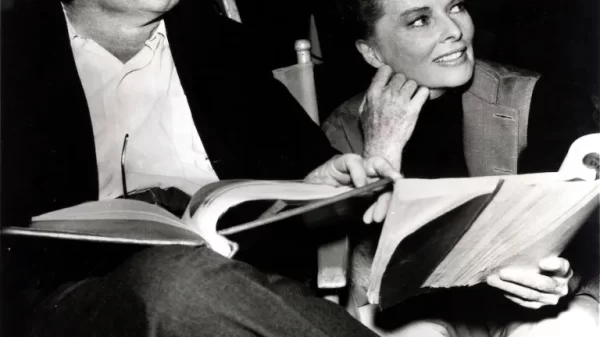Former Columbia Chief David Begelman Found Dead in Apparent Suicide
David Begelman, the former superagent and president of Columbia Pictures, was found dead on Monday in an apparent suicide.
The 73-year-old, who was at the center of a check-forging scandal in the 1970s that became synonymous with corruption in Hollywood, died from a gunshot wound, according to authorities.
Concerned for his safety, his friends went to the hotel on Monday night and discovered his body with the assistance of hotel security, as reported by Los Angeles Police Officer Eduardo Funes.
The former studio chief had been facing depression following the liquidation of his Gladden Entertainment firm in 1994.
The company, which he co-owned with sports mogul Bruce McNall, went bankrupt after allegedly defaulting on $4.1 million in payments to actors, writers, and directors.
Sources close to a federal grand jury investigation involving McNall suggested that Begelman may have been targeted as part of the probe.
However, federal authorities declined to comment on this matter.
After resigning last year, Begelman started a new company called Gladden Productions and had been attempting to secure financing for the venture.
Unfortunately, a source revealed that his efforts to line up financing in a meeting scheduled for Monday afternoon were unsuccessful.
Publicist Warren Cowan, a close friend of Begelman, stated that he was informed of Begelman's death by Begelman's manager Danny Welkes early Tuesday morning.
Cowan mentioned that the former mogul had been distressed and distraught over failing health and business setbacks.
However, just a few nights before his death, Cowan saw him at a popular West Hollywood restaurant with friends, and Begelman appeared to be fine.
Welkes could not be reached for comment, while Begelman's fourth wife, Annabelle, was too devastated to provide a statement.
Those who were acquainted with Begelman believe that his self-destructive tendencies ultimately led to his demise.
Producer Martin Bregman, a friend of 25 years, described Begelman as someone who had an enormous destructive nature.
Bregman believed that the pain became unbearable for Begelman, despite his brilliance, charm, and success in various aspects of life.
Begelman became entangled in an embezzlement scandal that was the subject of David McClintick's best-selling book “Indecent Exposure” in 1982.
His death came as a result of a self-inflicted gunshot wound at his hotel room on Monday night.
The room showed no signs of forced entry, and nothing appeared to be missing.
Although he did not leave behind a suicide note, authorities discovered a .38-caliber handgun near his body.
Known as one of Hollywood's top agents and negotiators, Begelman and his longtime partner Freddie Fields formed Creative Management Associates in 1960.
They represented numerous stars including Judy Garland, Paul Newman, Liza Minnelli, and Barbra Streisand, among others.
The duo pioneered the concept of “packaging” movies, where stars, directors, and writers from the same agency were attached to a single project.
In 1973, Begelman brought his packaging expertise to Columbia Pictures, rescuing the studio from bankruptcy and leading it to success with hits like “Close Encounters of the Third Kind,” “Shampoo,” and “Funny Lady.”
However, in 1977, Begelman found himself at the center of controversy when it was revealed that he had forged checks totaling $40,000.
These included a $10,000 check made out to actor Cliff Robertson, a $25,000 check to Ma Maison restaurateur Pierre Groleau, and a $5,000 check to director Martin Ritt.
Although Begelman was the focus of McClintick's book, the author clarified that he understood Begelman was not the true subject of the story.
The scandal exposed a battle for control of the corporation between investment banker Herbert A. Allen and Columbia Pictures Industries President and CEO Alan Hirschfield.
Following Robertson's report to the Beverly Hills police, Columbia initially tried to downplay the allegations.
However, after media attention intensified, Begelman was temporarily suspended in October 1977 pending investigations by the police and the Securities and Exchange Commission.
Although Begelman was reinstated two months later, he lost his corporate title and board status, and his options worth $1.4 million were revoked.
The incident resulted in the largest corporate fine in U.S. history.
In February 1978, Begelman was forced out of Columbia, and a few months later, he pleaded no contest to charges of grand theft related to the forged checks.
He paid a $5,000 fine, underwent therapy, and produced an anti-drug documentary as part of his public service.
Eventually, his grand theft conviction was reduced from a felony to a misdemeanor.























































